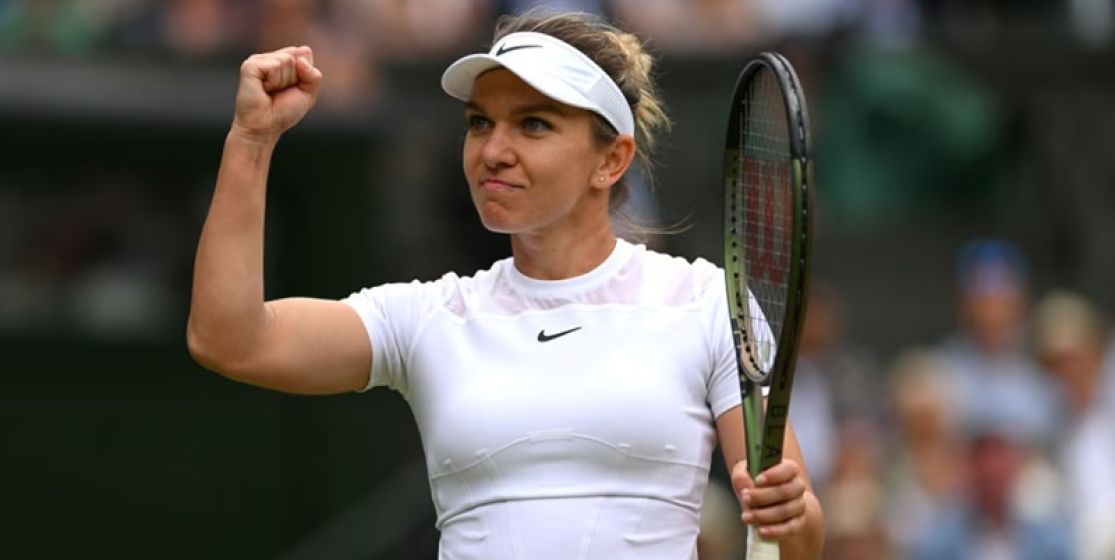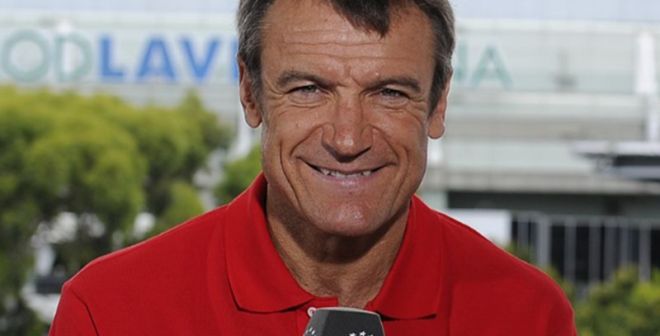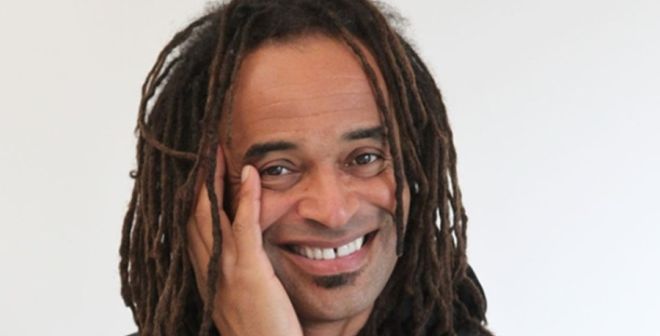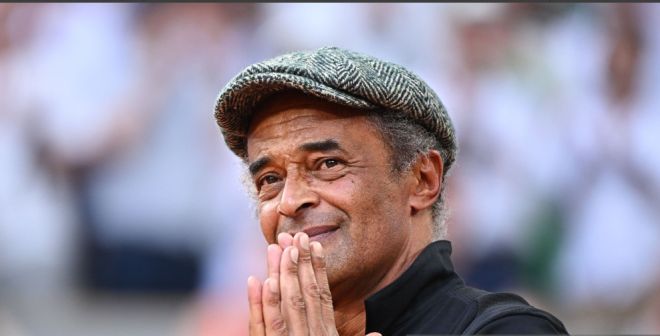Q. What was it like to be able to play again?
SIMONA HALEP: It was amazing. It was like a freedom. You know, I never been in jail, and hopefully I'll never be, but they say, many people told me it looks like you are in jail. I could not go watch a tennis match. This was the most difficult thing.
So, they told me, I wanted to go to Paris Bercy to see Sinner, and I was not able. So, what did I do that bad that I'm not able to watch a match? This is too much, in my opinion. When I got the freedom, it was, like, a relief and the light came back.
Q. You just said that people said to you don't hate tennis for this. In one sense, is tennis really your life?
SIMONA HALEP: Full. It was my life since I was four and a half when I first entered the court until today. It was my life and was my purity. I dedicated all my life to sport. It happened, this, so probably it's easy to hate it. But it didn't happen to me.
Q. Which is commendable. What's the best part of tennis that you like, and what's the least that you like? Let me put it this way: What did you miss the most and what did you miss the least?
SIMONA HALEP: The competition, the adrenaline, the sensation, the fighting spirit, the feeling that you don't have to give up, you have to fight with yourself sometimes, not with your opponent, with yourself, and I did this a lot in the past.
But what I missed the least? Traveling. Yeah, for me, always been a tough thing to travel. I don't like to fly, hotels. When I went back to Paris 125, and I saw myself in a hotel, I said, like: “Again”. So, this I didn't miss. But the play and the competition I missed a lot.
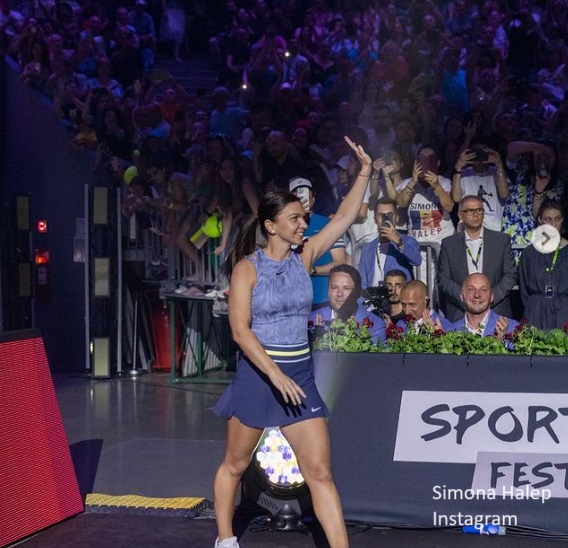
Q. You were just saying you weren't able to go and see Jannik Sinner in Paris. How much tennis did you actually watch?
SIMONA HALEP: I did not watch much.
Q. Really?
SIMONA HALEP: No, because it was too painful to know that I'm banned and I cannot even play or I cannot even watch in life. I said, I'm not going to watch the TV. I watched, I think, maximum 8, 10 matches in two years.
Q. Do you think what you ended up with the result, that that, in one sense, was the biggest victory of your life?
SIMONA HALEP: Yes, 100%. It was bigger than Grand Slams, bigger than No. 1. It was about integrity, and it was about myself, my person. I have always been honest and correct to tennis, to this sport. Even when I was a kid, I was not cheating with, you know, when you run around the court, I never cheated. Always, if I didn't do, I said to the coach. It was just my vision of life. It was like that.
Q. What do you want to achieve with the clearance and being able to play again?
SIMONA HALEP: I'm thinking every day about this, and I'm analyzing myself what I can do more and how good I can be again. I'm in doubt right now, I'm honest. I cannot practice full because of the injury.
My personality is that if I come back, I want top 10. Because it's just the way I'm thinking and the way I was all the time.
Q. It's that competitive part.
SIMONA HALEP: Exactly. And that's why maybe I was No. 1, because I always pushed my limit to that direction. But now the question is am I able again to do it? Do I have power inside to do it? I don't know these answers. But this is the dream if I come back fully to tennis.
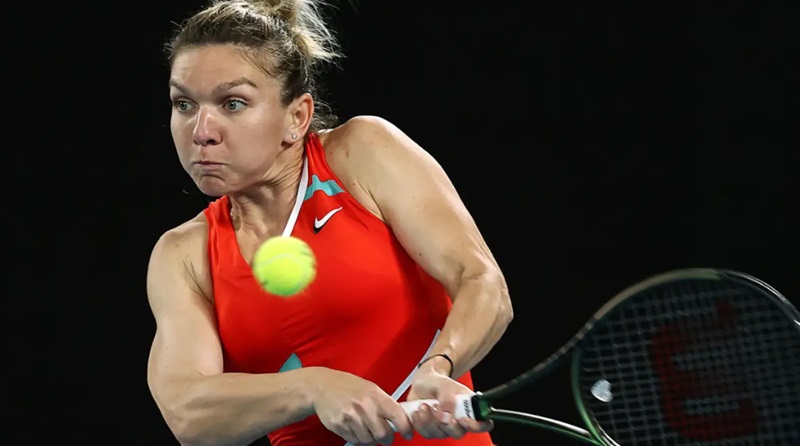
Q. When you were away, how much did you look at the trophies you won?
SIMONA HALEP: Zero.
Q. Zero ?
SIMONA HALEP: Because I didn't have them in my house. They were in Constanta in my parents' house. I tried to put on the side everything and to focus on myself as a person. I could do it. I took care of my body more. I took care of my, you know, my person, the woman I am. I transform everything in that direction. Probably this helped me to go through easier.
Q. In your professional life, being a player, you achieved so much: Wimbledon, French, No. 1, and all that. If I ask you to highlight one thing, "the" No. 1 thing for you in your playing career, what would you pick?
SIMONA HALEP: Oh, the first Grand Slam, because I always said in the press, probably you remember, that if you don't win a Grand Slam, you are not a real No. 1. So, the No. 1 of course was huge in 2017. But the French Open, the first one I won, it was something that I would put first on the list.
Q. Your foundation and a hotel. So now you're joining Andy Murray and Juan Carlos Ferrero with your own hotel. Tell me about those two things and how much they're meaning to you in also helping you to through what you went through.
SIMONA HALEP: Well, before the suspension, I was taking care more about the foundation. Honestly, in the last two years, I could not. I didn't have any energy, and I put it on the side a little bit. But in the past I helped kids just to get to discover sport. I didn't help kids to go professional. Just a lower level, the beginning. Everything starts with lower level.
And the hotel is just a project that I talked to my family a few years ago. I bought it, we renovated, and now it's about to start, to open it. It's in the mountains. I always prefer the mountains, because it's more quiet, and the green, the trees and stuff, give me quite like peaceful.
Yeah, I'm excited. I'm not in this area, but everything can be learned. It's exciting to see in the future that I can improve in myself also in this direction. I'm not a big businesswoman (smiling), but I like to do things, and if I can, I do. I have my brother who is taking care.
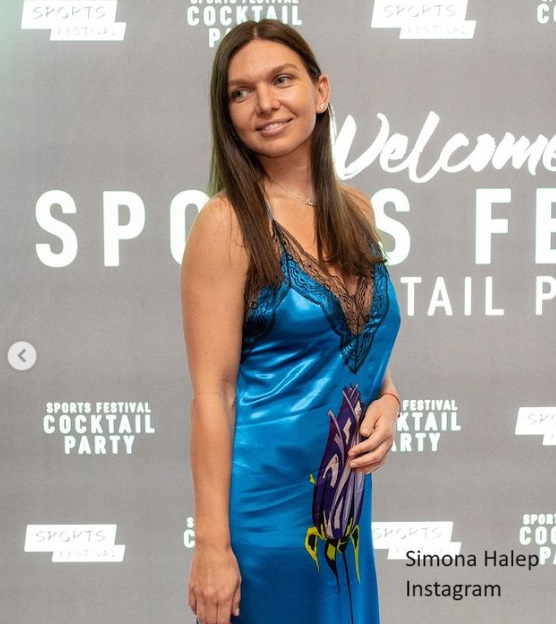
Q. That's brilliant. Tell me, who did you admire the most, and who do you admire the most?
SIMONA HALEP: You mean in general?
Q. You could talk about in general or as a player or across the board. Who do you really think is an important person or that's somebody I admire?
SIMONA HALEP: Well, honestly, I admired many players. I always tried to learn from them. So, I didn't have competition with the better ones. I always looked how I should improve, how I should do things better.
I would say few tennis players. My idol was Justine Henin, as everybody knows already. Some men players. The fire that Nadal has still, because I was watching him in Roland Garros, inspires us. Inspired me also Federer, with how he played. Djokovic with all the desire to be the best. This means a lot. It's not easy for everyone to do it.
I was No. 1, I had two Grand Slams, but I feel like they have something huge. They are so big, and you can just get inspiration from them.
In general, I would say that I'm very introverted person, and I don't have many friends and people that I talk, but I admire a lot my parents, because they gave everything for me. They put everything in, and they believed. I'm a person that really trust the person, and when I say I trust this person and I work with him or her, it's fully; there is no doubt. So, they did the same thing with me, and in the end was good.
Q. I'm sitting across from you, and I have always thought this, as well, you're a very beautiful person inside and out. There is a softness about you now. How do you see yourself?
SIMONA HALEP: I was analyzing myself many years. There are two things about me. On court I become a fighter. I see myself strong on the court, like nothing can touch me. I believe that I can do anything. I can beat everyone. I always had this mentality.
In general, I'm much softer, so I'm very soft, honestly. I'm more sensitive. I cannot say I'm very social, because I'm introverted and I'm shy, but I'm soft and I believe in love. I believe in good. I believe in, you know, like, I have empathy with people. This makes me soft and sensitive.
It's not easy in some situations, but I like how I am. My father told me once - I was upset on myself because I'm sensitive, and I always, if I do something, I do fully, like with all my heart. He said, “It's good. It means that you live, you feel everything. So don't change.” And I didn't change. I started to like this.
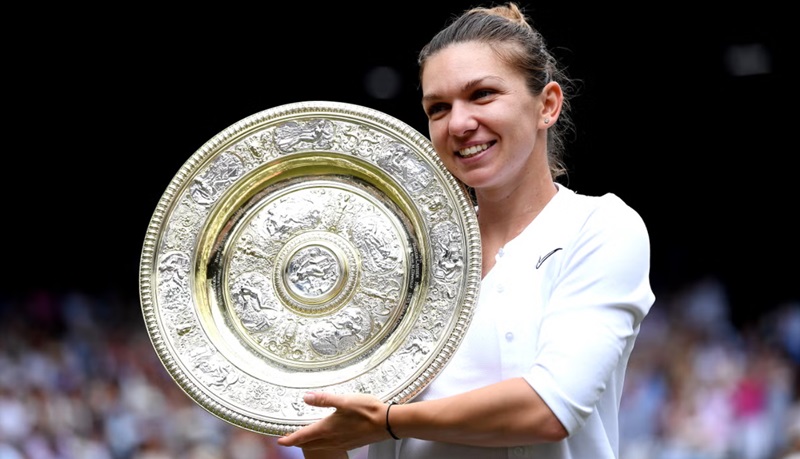
Q. So, with all the support that you got...
SIMONA HALEP: Amazing support from all the people.
Q. Yes.
SIMONA HALEP: Honestly, it was tough to believe that everyone is going to support me like that. It was really good to see some opponents, that they were supporting me, which means a lot. But the people, I never, ever in two years met a person who told me something negative, which is impressive. They all came to me. I did more pictures. They were more supportive. They said I will never believe you did something wrong.
I felt the love. I felt the appreciation. Probably when you asked me at the beginning what helped me to go through, probably this was one of the reasons.
Q. If you looked into a crystal ball for the future, what do you think you see?
SIMONA HALEP: I told my brother a few months ago that I'm scared of future. I never been, because tennis is you practice today for tomorrow. You always kind of know, expect what it's gonna happen. But after this experience that I went through, I'm a little bit scared.
Because life, it's beautiful, but it's also hard sometimes. You never know what to expect. I want to go back on court. This is the near future. I want to perform, to be close enough to what I have been if I can, if I still can, and I want kids. This is the future that I wish for myself, to have kids and to have a family.
Q. How much do you want or would like to hug a Venus Rosewater Trophy again or a Coupe Suzanne Lenglen again?
SIMONA HALEP: I did not think about this, to be honest, because I feel it's so far (smiling). It's going to be amazing.
I don't know if that's possible again, but it's a dream that it's really difficult to believe in it right now. I have other priorities: to get better, mental health, emotional. These are more important than a Grand Slam trophy in this moment, because I have a long life ahead, and life is not just about tennis.
I want to see the perspective of life a little bit different. Health is more important for the moment.


